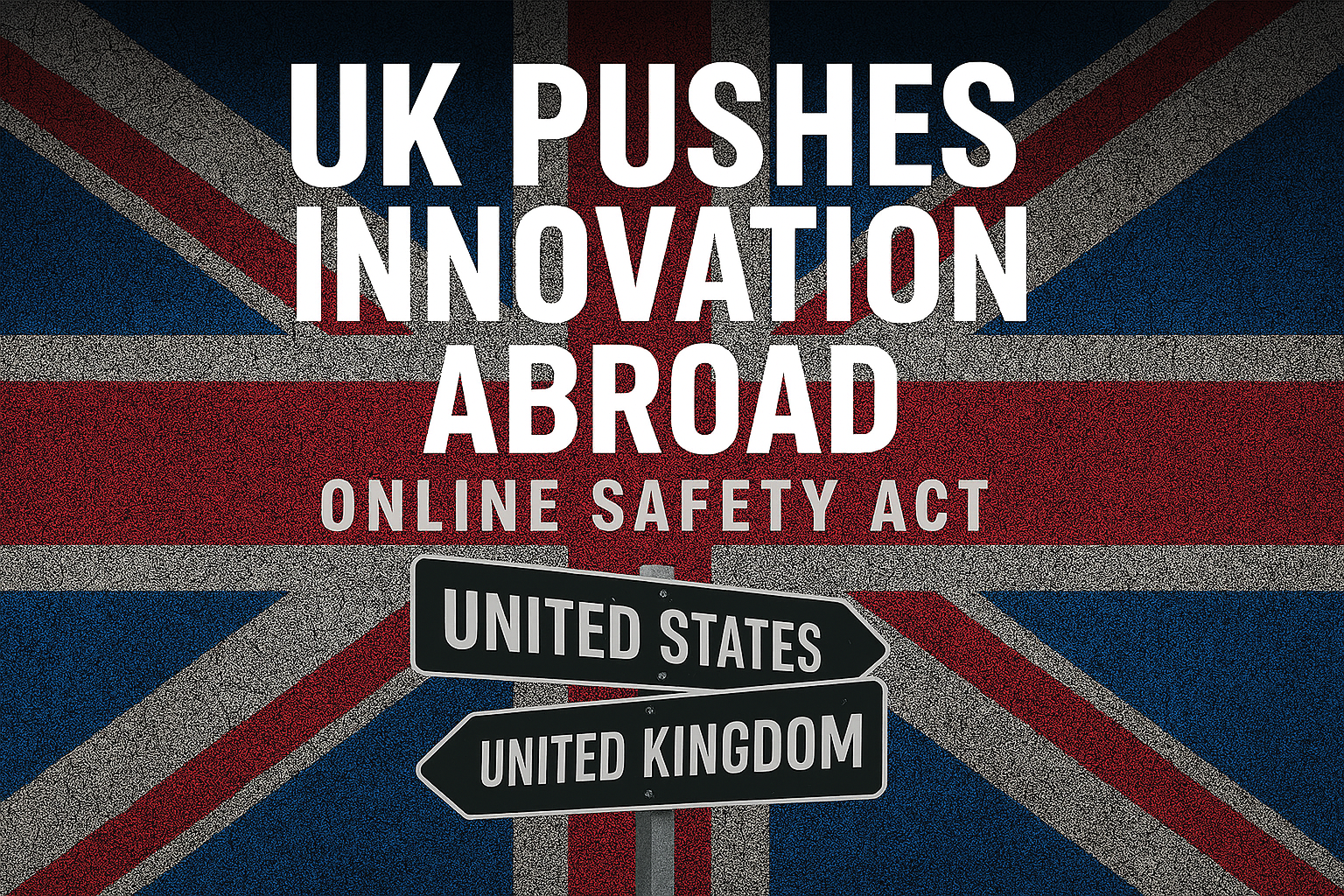A Shrinking Digital Horizon
The UK is at a crossroads. With the Online Safety Act 2025 now in force, combined with moves toward digital ID systems, facial recognition surveillance, and a potential central bank digital currency (CBDC), the country is reshaping its digital landscape in ways that could have profound consequences for both citizens and businesses.
While the government frames these measures as necessary for safety, security, and modernization, critics warn that the UK is drifting toward a high-regulation, high-surveillance model that risks stifling innovation and driving online businesses abroad.
🚨 Digital Control Ecosystem
- Online Safety Act 2025 imposing heavy compliance burdens on digital platforms
- Digital ID system rollout planned for 2029 with mandatory business participation
- Facial recognition surveillance expanding across public and private spaces
- CBDC "Digital Pound" enabling programmable money and financial surveillance
- 39 consecutive months of falling job vacancies creating economic pressure
- UK businesses facing competitive disadvantage versus US counterparts
The Online Safety Act 2025: Safety or Censorship?
The Act requires online platforms big and small to:
- Conduct risk assessments on harmful content
- Implement age verification systems
- Provide transparency reports to Ofcom
- Remove or restrict content deemed harmful, even if it is legal
For tech giants, compliance is costly but manageable. For startups, civic platforms, and independent creators, the burden is far heavier. Some platforms have already threatened to withdraw from the UK market rather than comply.
The result? A chilling effect on free expression and a competitive disadvantage for UK based businesses compared to their US counterparts, who operate under the broad protections of the First Amendment.
The US vs. UK: Diverging Paths
- United States: Strong constitutional protections for free speech. Businesses enjoy a predictable regulatory environment.
- United Kingdom: Prioritises harm reduction and safety, but at the cost of uncertainty, compliance costs, and censorship risks.
This divergence means that while the US remains a magnet for digital innovation, the UK risks becoming a hostile environment for online business growth.
Beyond the Act: Surveillance and Control
The Online Safety Act doesn't exist in isolation. It's part of a wider ecosystem of state led digital control:
- Digital ID: Plans for a nationwide ID system by 2029, initially tied to right to work and right to rent checks. Businesses may be forced to exclude users who refuse to comply.
- Facial Recognition: Increasingly deployed in public spaces and private services, raising civil liberties concerns and compliance risks for firms handling biometric data.
- CBDC ("Digital Pound"): The Bank of England is exploring a programmable digital currency. While it could streamline payments, critics warn it may enable financial surveillance and reduce privacy for both businesses and consumers.
Taken together, these measures create a climate of mistrust where every transaction, movement, and online interaction could be monitored.
📉 The Shrinking Job Market
The UK's economic backdrop makes these regulatory shifts even more concerning.
- The UK has now seen 39 consecutive months of falling job vacancies, the longest sustained decline on record.
- Vacancies have dropped to 717,000 in mid 2025, down from over 1.3 million at the post pandemic peak.
- Payrolled employees fell by 142,000 between July 2024 and July 2025, showing that the slowdown isn't just about fewer openings it's about real job losses.
- Recruitment firms report that permanent placements have been falling for three years, with employers citing low confidence and rising costs.
Why This Matters for Digital Regulation
When the labour market is already contracting:
- Compliance costs bite harder: Small and medium sized firms already struggling to hire must divert scarce resources into meeting Online Safety Act requirements.
- Innovation stalls: With fewer jobs and tighter budgets, startups are less likely to take risks on new platforms or services.
- Talent drain: Skilled workers may look abroad, especially to the US or EU, where the regulatory climate is lighter and opportunities more plentiful.
- Economic fragility: A shrinking job market reduces consumer spending power, which in turn makes it harder for online businesses to grow domestically.
In short: the UK is layering new regulatory burdens on top of a weakening economy, amplifying the risks of stagnation.
The Bigger Picture: Business and Democracy
The UK is positioning itself as a safety first regulator, but the unintended consequence may be:
- Innovation flight: Startups and platforms relocating to more free jurisdictions.
- Reduced competitiveness: Higher compliance costs make UK firms less agile.
- Erosion of trust: Citizens and businesses alike may see the state as drifting toward digital authoritarianism.
This isn't about rejecting safety or security. It's about balance. A democracy thrives when freedom, innovation, and accountability coexist. Tilt too far toward control, and the UK risks undermining the very values it claims to protect.
What the Media Isn't Saying
Mainstream coverage often frames the Online Safety Act as a child protection measure. What's missing is the economic and civic dimension:
- The Act could push businesses abroad, costing jobs and investment.
- Surveillance measures risk normalising state overreach in everyday life.
- Citizens may find themselves with less privacy, fewer choices, and weaker protections than their peers in other Western democracies.
Closing Thought
The UK faces a stark choice:
- Double down on regulation and surveillance, risking its status as a hub for digital innovation.
- Or recalibrate, ensuring that safety measures don't come at the expense of freedom, competitiveness, and trust.
The question isn't whether we need safer online spaces. It's whether we can achieve that without sacrificing the very freedoms that make a society worth protecting.
